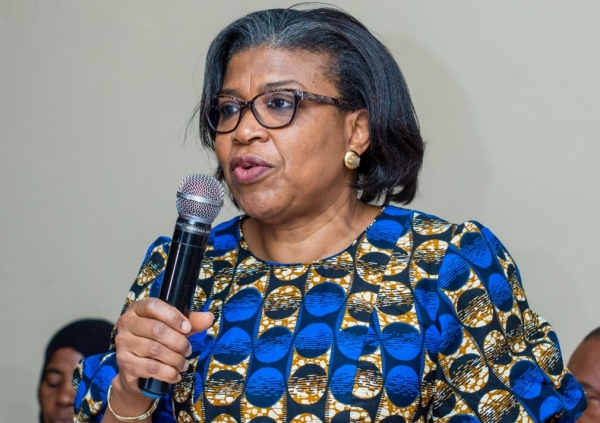The Debt Management Office, DMO, says decades of operating budget deficits by successive governments is responsible for Nigeria’s high debt profile.
The Director-General of the DMO, Patience Oniha, said this to the News Agency of Nigeria on Sunday in Abuja.
According to Oniha, a review of Nigeria’s fiscal data shows that not only has the government operated budget deficits which have been growing, but most of the deficits have been funded through local and external borrowing.
“The records show that deficits in the annual budgets, including supplementary budgets rose to N10.78 trillion in 2023 from N1.62 trillion in 2015.
“Between 82 per cent and 99 per cent of these were funded by new borrowing which ranged from N1.46 trillion in 2015 to N8.80 trillion in 2023.
“These facts confirm that these budget deficits, funded by new borrowings, have been responsible for the rapid growth in the debt stock and the resultant increases in debt service,” she said.
According to Mrs Oniha, this trend could have been avoided or at least moderated if revenues had been higher or expenditures lower.
She tasked the incoming government of Sen. Bola Tinubu to take cognisance of the situation and prioritise increased revenue generation.
“The budget deficits would have been much smaller, or Nigeria would have operated on a balanced budget.
“It is therefore imperative that the incoming government takes into account the perennial budget deficits in the preparation of the Medium-Term Expenditure Framework (2024 – 2026) and the 2024 budget.
“The government should also accelerate the growth in revenues to ensure debt sustainability,” she said.
Nigeria’s debt profile stood at N46.25 trillion in Dec. 2022, recording an increase of about seven trillion Naira from the 2021 debt figures.
Total Public debt stock, however, consists of the domestic and external debt stocks of the Federal Government, the 36 state governments and the Federal Capital Territory.
In terms of composition, total domestic debt stock is N27.55 trillion ($61.42 billion) while total external debt stock is N18.7 trillion (41.6 billion dollars)
The public debt figures, however, exclude the N22.7 trillion Federal Government’s indebtedness to the Central Bank of Nigeria, CBN, through Ways and Means advances.
The Ways and Means advances, which has been securitised by the Senate, and presently awaiting concurrent securitisation by the House of Representatives before it is included in the country’s public debt stock.
NAN






